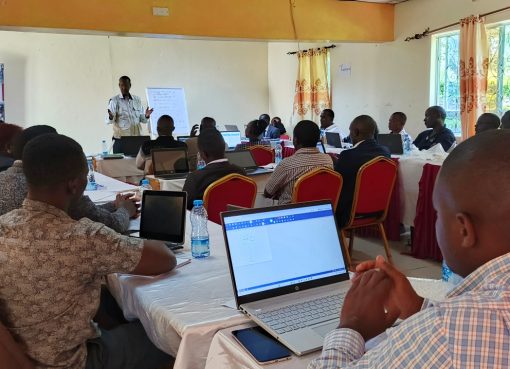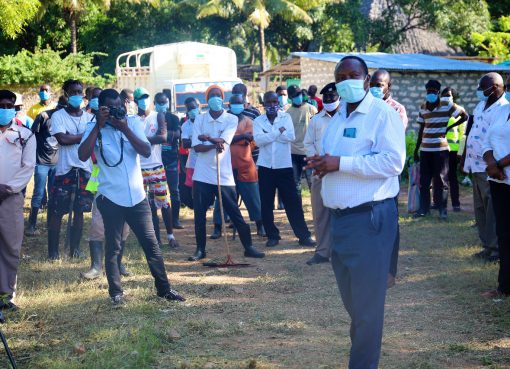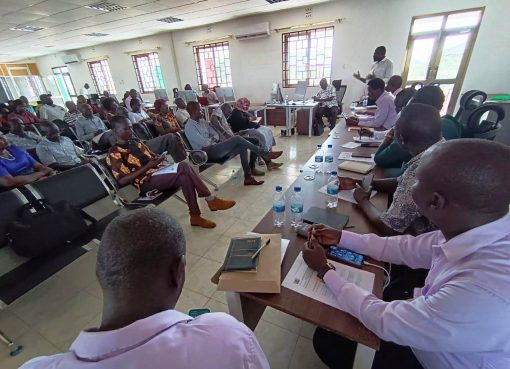World Animal Protection is calling on livestock farmers to take urgent action to reduce the overuse of antibiotics in animal agriculture, a key driver of Antimicrobial Resistance (AMR).
World Antimicrobial Resistance Awareness Week (WAAW) is celebrated annually from November 18–24 and is a campaign to raise awareness about resistance AMR and reduce its impact.
AMR occurs when bacteria, viruses, fungi and parasites no longer respond to medicines, leading to infections becoming difficult or impossible to treat, increasing the risk of disease spread, severe illness and death.
Antibiotics are essential for treating infections in both humans and animals, but their overuse in animal farming, especially as growth promoters or for routine disease prevention, contributes significantly to the spread of AMR.
Speaking today during a virtual event to commemorate WAAW, Dr Patrick Muinde, the Research Manager at World Animal Protection said the link between industrial animal agriculture and the rise of AMR cannot be ignored.
“In many intensive farming systems, antibiotics are used routinely not only to treat infections but also to compensate for poor living conditions that stress animals”, he said noting that worldwide around 80 billion animals experience physical mental stress
He explained that in these environments, antibiotics are often administered as growth promoters or as preventive treatments, even when animals are not sick and this widespread misuse accelerates the development of resistant bacteria that can then be transmitted to humans through the food chain, direct contact with animals, or environmental contamination.
“In 2010, antibiotic use in livestock was estimated at 63.151 tonnes and projected global rise by 67 percent by 2030 while in 2020, Antimicrobial use for cattle, sheep, chicken and pigs estimated at 99,502 tonnes of active ingredient. Consumption of antibiotics in humans increased by 65 percent between 2000 and 2015 in high income countries increased 6 percent and in low medium income countries increase by 114 percent”, he noted
The future of our food systems, Dr. Muinde said, depends on transforming agriculture to be more humane and sustainable, reducing the spread of AMR.
“By reducing our reliance on antibiotics in farming and adopting practices that prioritize animal welfare, we can build a healthier future for both people and animals.” recommends Dr. Muinde.
As demand for livestock-derived foods continues to soar—projected to grow by 30% by 2030—the need for responsible antibiotic use in animal agriculture has never been more urgent. By 2050, the global consumption of meat and milk is expected to more than double, increasing the pressure on farming systems that are already contributing to the rise of AMR. In regions like Africa, where industrial livestock systems are expanding rapidly, the threat of AMR is growing at an unprecedented pace.
This World Antimicrobial Awareness Week, World Animal Protection is calling for responsible use of antibiotics in animal agriculture saying Antibiotics should be used only, when necessary, under the guidance of a veterinarian, and to treat diagnosed infections.
“End the use of antibiotics as growth promoters: Antibiotics should never be used routinely to boost growth or compensate for poor animal welfare and governments should Strengthen policies and regulations to ensure that antibiotics are used judiciously, and that animals are raised in conditions that promote their health and welfare”, Dr. Muide said.
WAP has further called for reduction of the need for antibiotics by improving animal living conditions, providing better nutrition, and using alternative methods of disease prevention such as vaccination and biosecurity measures.
“Join global efforts to transform food systems by supporting campaigns that advocate for better animal welfare and responsible antibiotic use. Together, we can protect animals, safeguard the effectiveness of life-saving antibiotics, and ensure a healthier planet for future generations”, Dr. Muinde said.
In September this year, Global leaders approved a political declaration at the 79th United Nations General Assembly (UNGA) High-Level Meeting on Antimicrobial Resistance (AMR), committing to a clear set of targets and actions, including reducing the estimated 4.95 million human deaths associated with bacterial antimicrobial resistance (AMR) annually by 10 percent by 2030.
According to Dr Tedros Adhanom Ghebreyesus, WHO Director-General, a century ago since Alexander Fleming stumbled across penicillin in a laboratory in London, antibiotics have become a mainstay of medicine, transforming once-deadly infections into treatable and curable conditions but was quick to add that Antimicrobial resistance however threatens to unwind that progress, making it without question one of the most pressing health challenges of our time.
By Wangari Ndirangu





